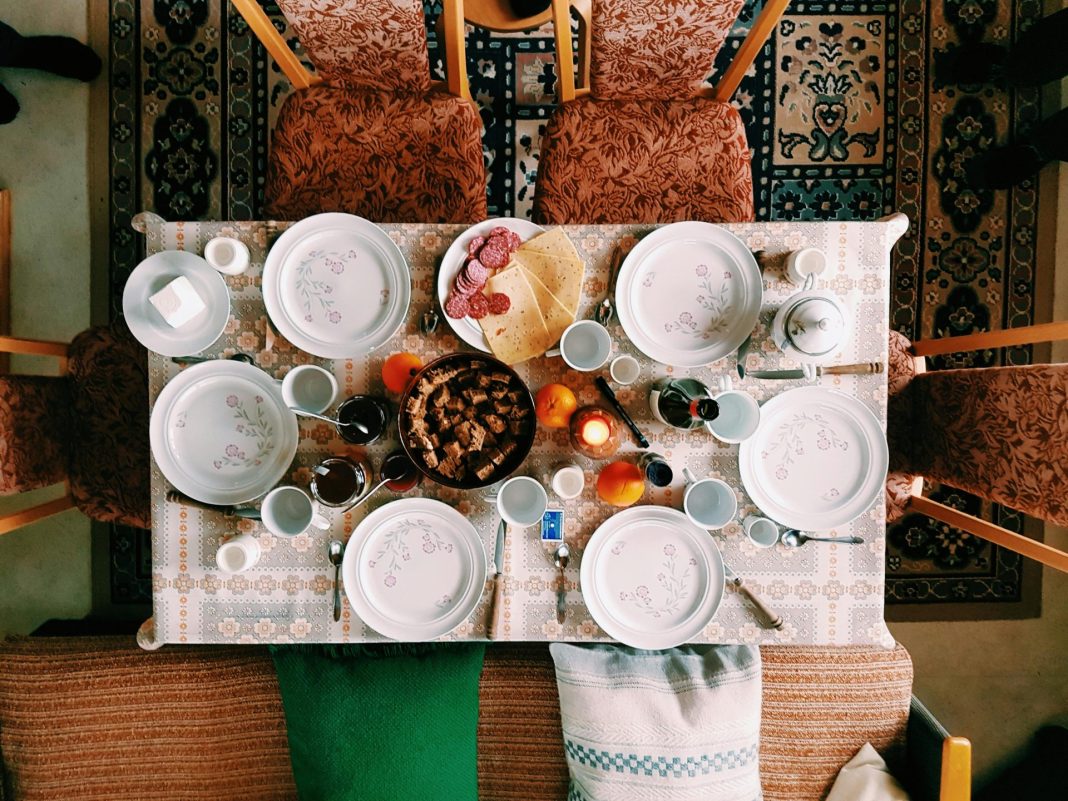I am not American. I’m actually not even British. Nevertheless, US elections tend to take on their own significance in popular political discourse stretching far beyond American shores. For this reason, until the impending moment when the votes are in, it seems that attempting to avert political discussion is an impossible task.
I can attest to such being the case within my family. This summer, I attended a fair few family gatherings. At one, the briefing my parents gave me before politely knocking on my aunt’s door was: “For god’s sake, don’t bring up politics”. And mind you – I was certainly of the opinion that this was warranted, reasonable advice definitely worth following to keep the peace.
Alas. Politics was indeed brought up.
First, I tried to zone out. That lasted about ten minutes. Once I got started, I was arguing till the cows came home. My mum later said I had been a little, well, hostile.
Exasperated (and sometimes appalled) as I was by the conversation and opinions of my extended family members, the experience was an important reminder of exactly how much of an echo chamber Oxford is. The sensitive, nuanced disagreements with peers at Oxford usually about how to achieve some agreed upon goal are minor and superfluous in comparison to the cataclysmic political schisms that existed between the opinions of myself and my family members. Specific, delicate political discussion is a product of the Oxford bubble that always, sadly, pops.
So with the US election on the horizon and political contentions bubbling just below the surface of so many interactions – how ought we to approach political disagreement? To add flames to an already daunting task, how does one approach political disagreement with family members and turn outbursts at the family dinner table into constructive, meaningful conversations?
As someone who has all too often fallen in the camp of outburst, I do not pretend to know all the answers to this question. But I can speak from experience on just how difficult this task is, and what often works for me to ease some of its pressures.
I think knowing when to shut up is definitely a good start. Pair that with the patience to actually listen to what your rogue cousin has to say — and taking the time to hear why they think that can often can be remarkably insightful. For me, listening to my grandma reminisce that JFK was the best — most handsome — US President, and then go on to announce that Donald Trump would have her vote were she born in the land of the free, feels important. My grandma is a hard working, optimistic and kind-hearted Italian Nonna who makes the best gnocchi, and for her, politics has never been the kind of philosophical moral discussion as it is for Oxford students. She’ll still come out with outlandish statements about sexism or climate change that I’ll be dumbfounded by, but that doesn’t diminish my impetus to speak with her, to learn about why and where her ideas come from.
These kinds of experiences tend to be completely off limits to the average Oxford student circulating amongst the academic elite. Whilst Oxford provides us with rich academic opportunities to grow and learn, our time away colours often abstract and intangible academic discourse with the diversity and complexity of real people that live and exist in the wider world.
When voicing one’s own opinion at the dinner table – something that you shouldn’t be dissuaded from merely in lieu of disagreement – my advice would probably be to do so a little tentatively, being prepared to explain and back yourself when asked why exactly you find that to be true. Sometimes when doing this, I am confronted with questions to assumptions that I wouldn’t normally think twice about. This can trigger an introspection and self-awareness that isn’t always initiated when learning alongside like-minded peers and tutors. If you take disagreements as that – catalysers of introspection – political conversations become far more attractive, far more interesting, and not something we ought to shy away from.
So with things really heating up on the US election front, which may or may not entail a similar heating up on the family political turf for you, I would be an advocate for not leaving politics at the door before attending a family dinner. By inviting in politics and letting disagreements come out, a whole lot of self-reflection becomes possible. Talking about politics outside the bubble makes what you learn inside it all the more relevant.


